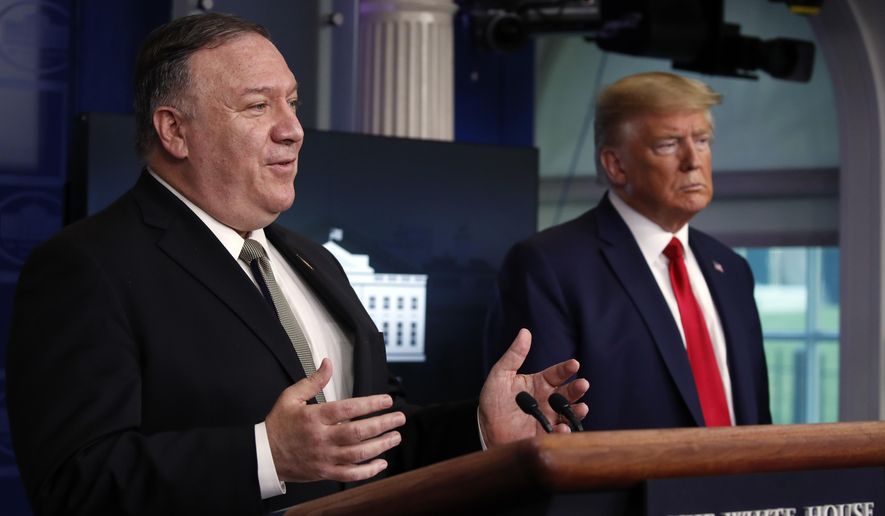Allies and foes alike rejected the Trump administration’s effort this weekend to reimpose global economic sanctions on Iran, setting up a potential showdown at the United Nations that could leave Washington isolated on the world stage.
Secretary of State Mike Pompeo said Saturday night that the U.S. has officially triggered a “snapback” provision as part of the 2015 nuclear deal with Iran. That move, he said, will reimpose a set of harsh UN sanctions on Tehran that had been lifted as part of the Obama-era agreement.
But other parties to the deal — including staunch American allies in Europe — say the U.S. has no standing because President Trump withdrew from the deal in 2018, and they argue that the sanctions relief granted to Iran under the pact should remain in place.
U.S. officials, meanwhile, say that because Iran has violated the terms of the nuclear deal, and because the UN has failed to extend an arms embargo on Tehran set to expire next month, the world community should unite and reimpose all sanctions.
“The Trump administration has always understood that the greatest threat to peace in the Middle East comes from Islamic Republic of Iran, whose violent efforts to spread revolution have killed thousands and upended the lives of millions of innocent people,” Mr. Pompeo said in a statement. “History shows appeasement only emboldens such regimes. Thus today, the United States welcomes the return of virtually all previously terminated UN sanctions on the Islamic Republic of Iran, the world’s leading state sponsor of terror and anti-Semitism.”
“The United States expects all UN Member States to fully comply with their obligations to implement these measures,” he said.
It’s unclear exactly what happens next. The issue is expected to dominate discussion this week at the annual UN General Assembly, which is being held virtually this year amid the COVID-19 pandemic.
A previous U.S. effort to extend the arms embargo on Iran failed in a UN Security Council vote. An American push to reimpose sanctions seems headed for a similar fate, as virtually all other stakeholders oppose Washington’s effort.
Britain, France and Germany wrote in a joint letter over the weekend that the administration’s move “is incapable of having legal effect and so cannot bring in to effect the procedure.”
“It flows from this that any decisions and actions which would be taken based on this procedure or on its possible outcome would also be incapable of having any legal effect,” wrote the three nations, all of which remain committed to the 2015 nuclear deal and have tried to salvage it.
Iranian officials also flatly rejected the U.S. announcement.
“The U.S. knows that its claim is empty, illegal, and ineffective,” said Saeed Khatibzadeh, a spokesman for the Iranian Foreign Ministry, as quoted by the state-run Islamic Republic News Agency.
U.N. Secretary-General Antonio Guterres told Security Council members over the weekend that he cannot take any action on the issue, according to Reuters. China and Russia also strongly oppose the administration’s position.




Please read our comment policy before commenting.